Find Help
More Items From Ergsy search
-

Understanding Your Sexual Health - Herpes
Relevance: 100%
-
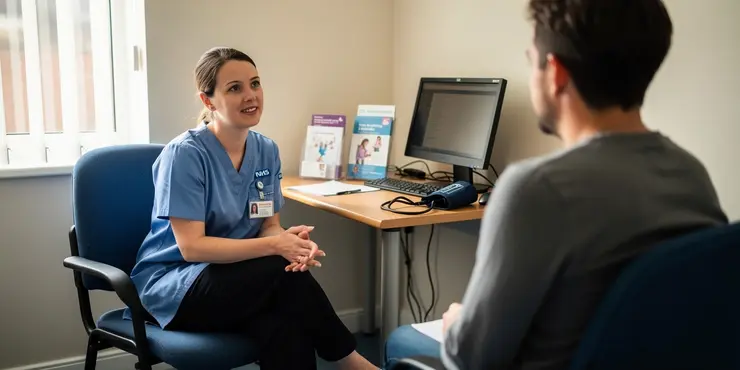
The Different Roles in Sexual Health and Family Planning UK
Relevance: 52%
-
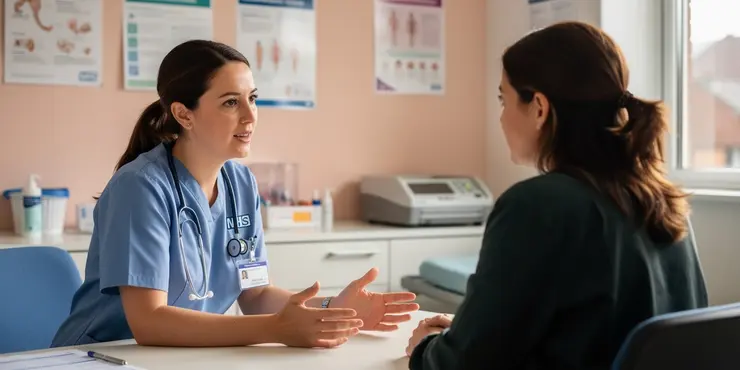
Sexually transmitted infections STIs
Relevance: 50%
-

Sexual Health - HIV Testing
Relevance: 47%
-

Let's Talk Sexual Health - Home Self Testing Kits
Relevance: 46%
-

Understanding Your Sexual Health - Genital Warts
Relevance: 46%
-

Understanding Your Sexual Health - Gonorrhoea
Relevance: 45%
-

Let's Talk Sexual Health - Home Self Testing Kits
Relevance: 45%
-
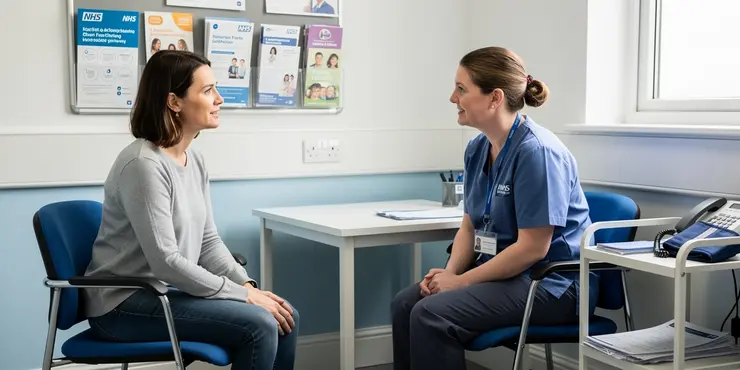
Understanding Your Sexual Health - Pelvic Inflammatory Disease
Relevance: 45%
-
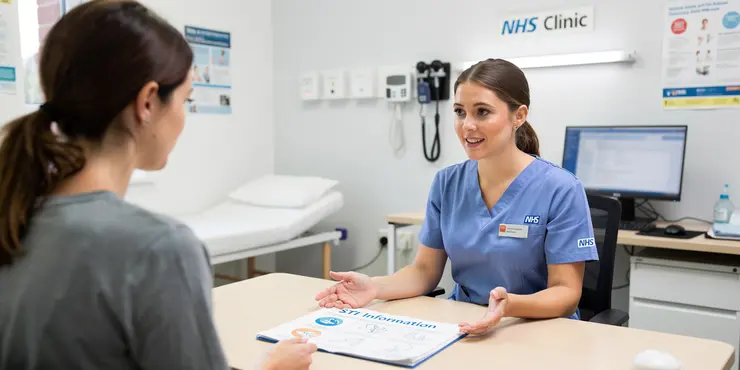
NHS STI (Sexually Transmitted Infections) Information Video
Relevance: 42%
-
Three-year limit for child sexual abuse claims to be removed
Relevance: 33%
-

Cervical screening for women who have experienced sexual assault | NHS
Relevance: 31%
-
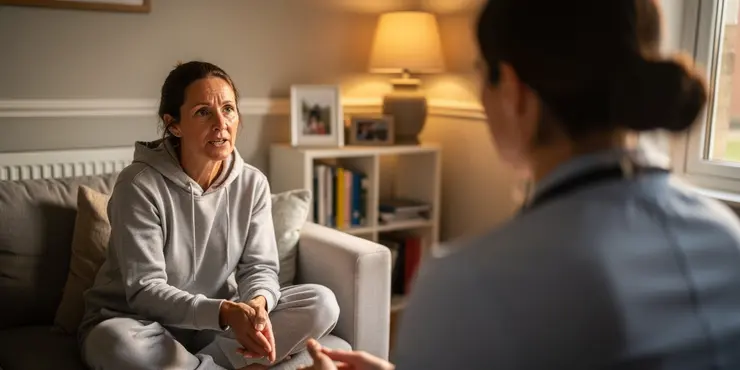
Pelvic health: prolapse
Relevance: 22%
-
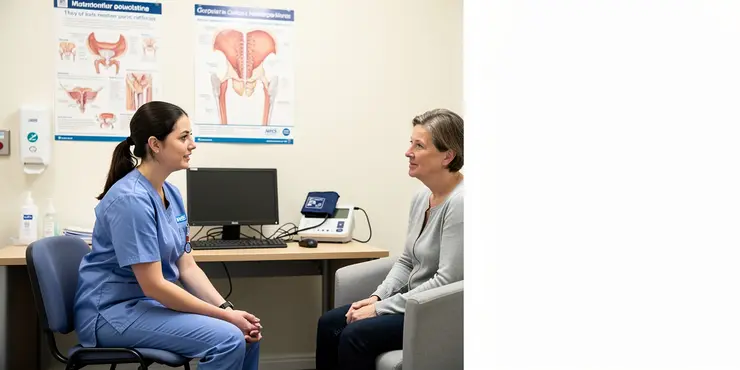
Your pelvic health matters: insights from NHS clinicians
Relevance: 21%
-

What affects my sex drive?
Relevance: 20%
-

What is gut health?
Relevance: 19%
-
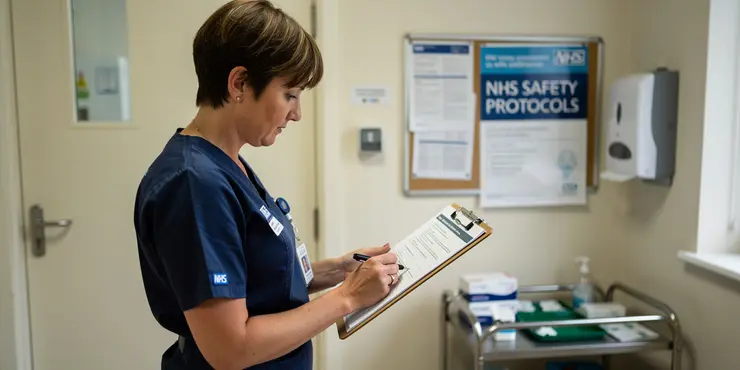
Health and safety responsibilities
Relevance: 19%
-

Can gut health affect mental health as one ages?
Relevance: 19%
-
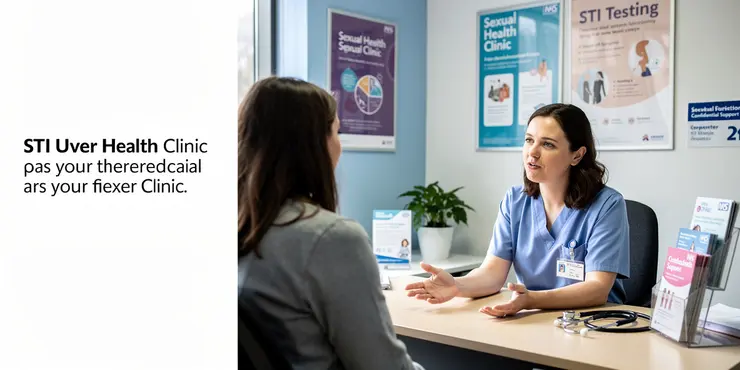
Can gonorrhoea be prevented?
Relevance: 19%
-

Is health linked to aging?
Relevance: 19%
-

Harshi’s learning disability annual health check and health action plan
Relevance: 18%
-
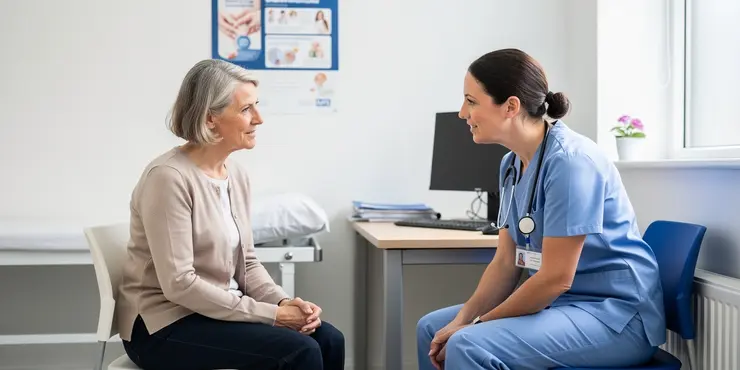
Pelvic health: prolapse
Relevance: 18%
-

Is fibre good for health?
Relevance: 18%
-
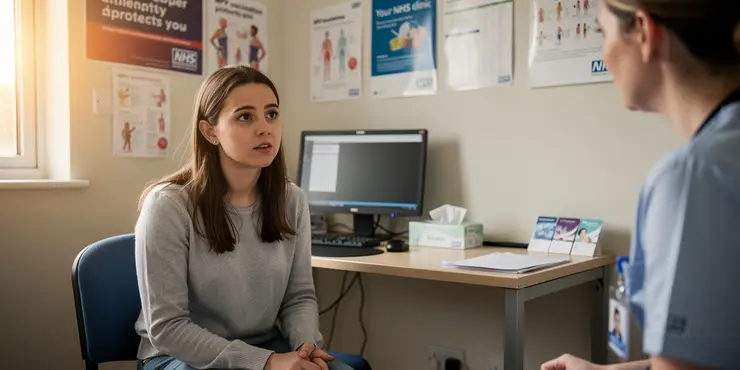
How common is HPV?
Relevance: 18%
-
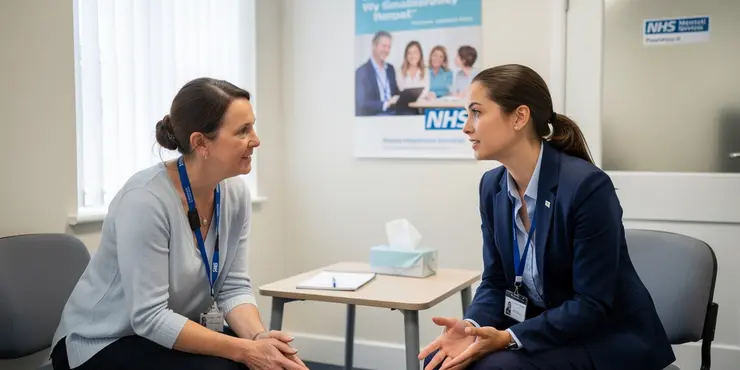
Mental Health Support Services in the UK
Relevance: 18%
-

Understanding Mental Health in Children
Relevance: 18%
-
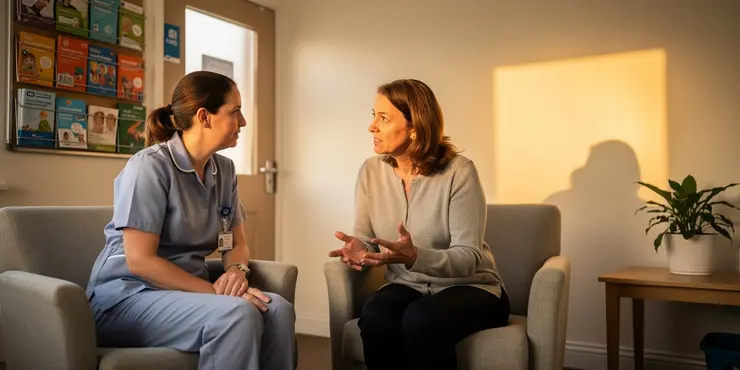
Mental Health Support Resources in the UK
Relevance: 18%
-

Mental Health Resources for Families
Relevance: 18%
-

What is a public health funeral?
Relevance: 18%
-
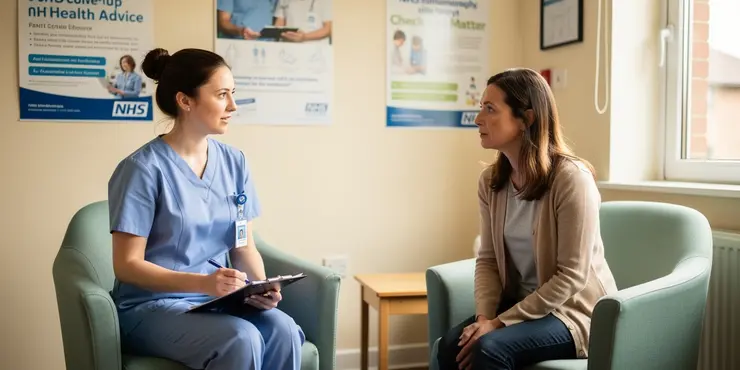
Bacterial vaginosis
Relevance: 17%
-

What should one do if they suspect they have gonorrhoea?
Relevance: 17%
-

Health Officials Warn Against 'DIY' Health Remedies Amid Supply Chain Issues
Relevance: 17%
-

Postpartum Health: Mother and Baby
Relevance: 17%
-

Why is fiber important for health?
Relevance: 17%
-

Are traffic fumes bad for my health?
Relevance: 17%
-
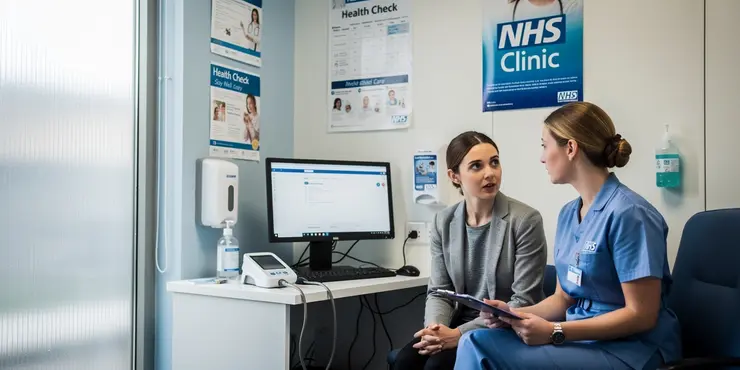
What age group is most at risk for HPV?
Relevance: 17%
-
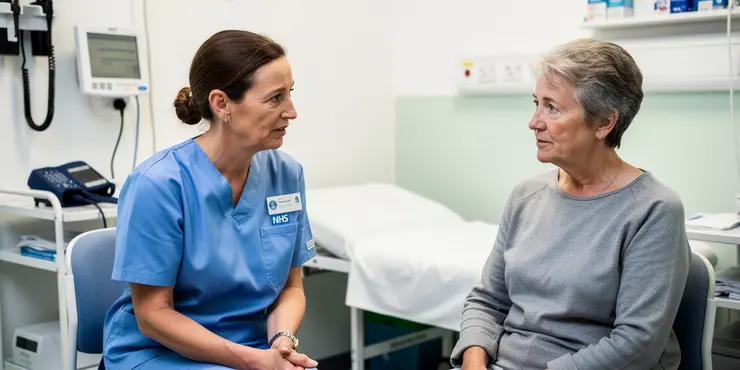
Can you still get gonorrhoea after treatment?
Relevance: 17%
-

Is gut health linked to the aging process?
Relevance: 17%
-

Accessing Mental Health Support Resources in the UK
Relevance: 17%
-

Advancements in Mental Health Resources for Families
Relevance: 17%
Understanding Your Sexual Health - Herpes
What is Herpes?
Herpes is a common sexually transmitted infection (STI) caused by the herpes simplex virus (HSV). There are two types: HSV-1, which typically causes cold sores around the mouth, and HSV-2, which generally causes genital herpes. Many people in the United Kingdom live with herpes, often without being aware of it due to minimal or absent symptoms.
Symptoms and Signs
Genital herpes symptoms may include pain, itching, and sores in your genital area. These symptoms can be mild or severe and may appear weeks after exposure. Some individuals experience frequent outbreaks, while others may only have one initial outbreak with minimal subsequent symptoms.
Transmission and Prevention
Herpes is transmitted through direct contact with herpes sores, skin, saliva, or genital secretions. The virus can be spread even when sores are not visible. To lower the risk of transmission, use condoms or dental dams during sexual activity, avoid sexual contact during outbreaks, and discuss STI testing with your partner.
Diagnosis and Treatment
Herpes is diagnosed through a physical examination and laboratory tests such as swabs from sores or blood tests. There is no cure for herpes, but antiviral medications can help manage symptoms, reduce the frequency of outbreaks, and lower the risk of transmission. Consult your healthcare provider for the best treatment plan.
Living with Herpes
A herpes diagnosis can be challenging, but many individuals lead normal, healthy lives with the virus. Open and honest communication with sexual partners, practicing safe sex, and adhering to treatment plans are essential. Support is available through healthcare providers and support groups within the UK.
Resources
If you have concerns about herpes or other STI-related issues, help is at hand. Contact organisations such as the NHS, Terrence Higgins Trust, or Brook for confidential support and advice. Regular STI screenings are recommended to maintain your sexual health.
Understanding Your Sexual Health - Herpes
What is Herpes?
Herpes is a disease you can get from sex. It is caused by a virus called herpes simplex virus (HSV). There are 2 kinds of herpes: HSV-1 usually causes cold sores on your mouth, and HSV-2 usually causes sores on your private parts. Many people have herpes without knowing because they don't feel sick.
Symptoms and Signs
Symptoms of genital herpes can include feelings like pain and itching, and sometimes sores appear on your private parts. These feelings can be strong or gentle, and they might start weeks after catching the virus. Some people have outbreaks often, while others may have just one outbreak.
Transmission and Prevention
You can catch herpes by touching herpes sores or skin, sharing saliva or genital fluids. You can get herpes even if you can't see any sores. To avoid catching or spreading herpes, use a condom or dental dam and don't have sex when you or your partner has sores. Talk to your partner about getting tested for STIs.
Diagnosis and Treatment
Doctors can find out if you have herpes by looking at sores or doing tests on swabs from sores or through a blood test. Herpes can't be cured, but medicines can help you feel better, have fewer outbreaks, and not pass it on to others. Talk to your doctor about the best medicine for you.
Living with Herpes
It can be hard to find out you have herpes, but lots of people live healthy lives with it. It's important to talk openly with partners, practice safe sex, and follow your treatment plan. You can find support from doctors and groups that help people in the UK.
Resources
If you are worried about herpes or other similar issues, there is help available. You can contact places like the NHS, Terrence Higgins Trust, or Brook for advice in private. It's a good idea to have regular checks to keep healthy.
Frequently Asked Questions
What is herpes?
Herpes is a common viral infection caused by the herpes simplex virus (HSV). There are two types: HSV-1, typically causing oral herpes, and HSV-2, which is usually responsible for genital herpes.
How is herpes transmitted?
Herpes is transmitted through direct skin-to-skin contact with an infected area. This can occur during vaginal, anal, or oral sex, and can also be spread through close personal contact.
What are the symptoms of herpes?
Symptoms of herpes can include painful blisters or sores on the genital area, buttocks, thighs, or mouth, itching, pain during urination, and flu-like symptoms such as fever and swollen glands.
Can herpes be cured?
There is currently no cure for herpes, but antiviral medications can help manage the symptoms and reduce the frequency of outbreaks.
How can I tell if I have herpes?
A healthcare provider can diagnose herpes based on symptoms and by taking a swab from a sore for laboratory testing. Blood tests can also detect herpes antibodies.
Can herpes be transmitted even if there are no symptoms?
Yes, herpes can be transmitted even when there are no visible symptoms because the virus can be shed from the skin occasionally.
How can I prevent spreading herpes to my partner?
Using condoms, taking antiviral medications, and abstaining from sexual activity during outbreaks can help reduce the risk of transmitting herpes to your partner.
Can I get herpes from sharing towels or toilets?
Herpes is not typically spread through inanimate objects like towels or toilet seats. It requires direct skin-to-skin contact.
Is it safe to have sex if I or my partner has herpes?
Yes, but using protection such as condoms and avoiding sexual activity during outbreaks is important to reduce the risk of transmission.
What should I do if I think I have herpes?
If you think you have herpes, see a healthcare provider for evaluation and testing. They can provide you with information and treatment options.
Can herpes affect my pregnancy?
Yes, herpes can pose risks during pregnancy, especially if contracted for the first time during pregnancy. It's important to inform your healthcare provider if you have herpes.
Is there a link between herpes and HIV?
Having genital herpes can increase the risk of acquiring or transmitting HIV because herpes sores can create an entry point for the HIV virus.
How can I talk to my partner about herpes?
Being honest and calm, providing factual information, and discussing ways to manage and reduce risk can help when talking to your partner about herpes.
Can I still have a normal sex life with herpes?
Yes, with proper management and precautions, individuals with herpes can maintain a healthy and fulfilling sex life.
Where can I find more information on herpes?
You can find more information by visiting trusted health websites, consulting with healthcare providers, and accessing resources from sexual health organisations in the UK.
What is herpes?
Herpes is a virus. It can cause sores on your skin. These sores can be on your mouth or private parts.
Herpes spreads easily. It can pass from one person to another through close contact.
Here is how you can learn more about herpes:
- Ask a doctor or nurse.
- Read a kid-friendly health book.
- Watch a simple video for kids about herpes.
Herpes is a virus that many people get. It is called the herpes simplex virus or HSV. There are two kinds: HSV-1 usually causes sores around the mouth. HSV-2 usually causes sores around private parts.
How do you catch herpes?
You can catch herpes by touching someone who has the herpes virus.
It spreads when someone with herpes has a sore, but sometimes it spreads even when you can't see a sore.
Herpes can spread through kissing or sharing things like lip balm or utensils.
If you have questions, ask a trusted adult or doctor for help.
Using pictures or simple diagrams can help understand how herpes spreads.
Herpes spreads when skin touches skin. It happens if someone with herpes touches another person's skin. This can happen during sex or if people are very close.
What happens if you have herpes?
You might have herpes if you see any of these signs:
- Painful blisters or sores on your private parts, bottom, thighs, or mouth.
- Itchy feelings where the sores are.
- It hurts when you pee.
- You feel like you have the flu, with a fever and swollen bumps (glands) in your body.
If you notice these signs, talk to a doctor. A doctor can help you and give you medicine to feel better.
Can herpes go away?
No, herpes cannot be completely cured. But there are medicines that can help. These medicines can make the sores go away faster and help with pain. They can also stop the virus from spreading to others.
Here are some tips to help you feel better:
- Take the medicine your doctor gives you.
- Keep the sore area clean and dry.
- Do not touch the sores. Wash your hands if you do.
- Use pain relievers if it hurts.
If you have herpes, talk to your doctor. They can help you understand what to do.
There is no medicine that can totally fix herpes, but there are special pills that can help you feel better and get sick less often.
How do I know if I have herpes?
Herpes is a virus. It can make sores on your skin.
Here are some signs you might have herpes:
- Sores or blisters on your mouth or private parts.
- Itching or tingling before the sores appear.
- Pain when you urinate (pee).
- Fever or feeling very tired.
If you think you have herpes, it's important to talk to a doctor. They can help you know for sure and give you medicine if needed.
Here are some tips to help you:
- Write down your symptoms and show them to the doctor.
- Ask a friend or family member to go with you to the doctor for support.
- Use simple pictures or charts to help understand what the doctor says.
A doctor or nurse can tell if you have herpes by looking at your symptoms. They might take a small sample from a sore to test it in a lab. Blood tests can also show if your body is fighting herpes.
Tips for easier understanding: You can use tools like read-aloud apps or ask someone to help explain the words to you.
Can you get herpes from someone who doesn’t show signs?
Yes, you can catch herpes even if you can't see it on someone's skin. The virus can still be there and spread.
How can I stop giving herpes to my partner?
There are a few ways to stop spreading herpes to your partner:
- Use condoms when you have sex.
- Take medicine that helps with herpes.
- Don’t have sex when you have a herpes outbreak (when sores appear).
Can I catch herpes from using the same towel or toilet?
Herpes usually does not spread through things like towels or toilet seats. It spreads when skin touches skin.
Can I have sex if me or my partner has herpes?
It is okay to ask this question. Herpes is a virus that can be spread through sex.
If you or your partner has herpes, you can still have sex. But you need to be careful.
Here are some tips to stay safe:
- Talk to your partner about herpes. Be open and honest.
- Use a condom every time you have sex.
- Do not have sex when you have sores or blisters.
If you are unsure, ask a doctor or nurse for advice. They can help and answer your questions.
Yes, it's possible. But it's important to use protection like condoms. Also, try not to have sex if there is an outbreak. This helps keep everyone safe.
What to Do if You Think You Have Herpes
If you think you have herpes, don't worry. Here are some steps you can take:
1. Talk to a Doctor: Tell a doctor or nurse how you feel. They can help you find out if you have herpes.
2. Get Tested: The doctor may do a test to check. This might be a small swab or a blood test.
3. Take Medicine: If the doctor says you have herpes, they can give you medicine to help you feel better.
4. Use Protection: Always use protection, like condoms. This can help keep you and others safe.
5. Talk to Someone: It's okay to talk to a friend or family member about how you feel. You are not alone.
Using tools like picture charts or flashcards may help you remember these steps. Remember, doctors are there to help you.
If you think you have herpes, go to a doctor or nurse. They can check you and tell you what to do next. They will give you information and help you feel better.
Can herpes hurt my pregnancy?
Herpes is a virus that can make you sick. If you are pregnant, it is important to stay healthy to protect you and your baby.
If you have herpes, talk to your doctor. They can help you and make sure your baby is safe.
Your doctor might give you some medicine. This medicine can stop the virus from hurting your baby.
It is good to ask for help if you need it. You can ask your doctor or nurse any questions you have.
Reading with a friend or using audio books can also help you to understand better.
Yes, herpes can be a problem when you are going to have a baby. It is more of a problem if you get it for the first time while you are pregnant. Make sure you tell your doctor if you have herpes.
Is there a connection between herpes and HIV?
Can herpes and HIV be connected?
Herpes is a virus that can cause sores on your mouth or private parts.
HIV is a virus that can make you very sick if not treated.
If you have herpes, it might be easier to get HIV.
Try to see a doctor if you think you have herpes or HIV.
Talking to your doctor is a helpful way to learn more.
Use pictures or videos to understand these viruses better.
Having genital herpes can make it easier to get or give someone HIV. This is because herpes sores are like open doors for the HIV virus to get in.
How can I talk to my partner about herpes?
Talking to your partner about herpes can be hard.
- Take deep breaths and stay calm.
- Pick a quiet and safe place to talk.
- Be honest and use simple words.
- Tell them what herpes is and how it can be managed.
- Listen to your partner's thoughts and feelings.
- Answer their questions if you can.
- Suggest visiting a doctor together for more help.
Some tools might help you:
- Write down what you want to say first.
- Use pictures or drawings to explain herpes.
- Practice the talk with a friend or in front of a mirror.
When you talk to your partner about herpes, it's good to be honest and calm. Share facts about herpes. Talk about what you can do to stay healthy and safe. This will help both of you.
Can I have a normal sex life if I have herpes?
Yes, you can still have a normal sex life if you have herpes. Here is how:
- Talk with your partner: It is important to tell your partner about herpes. This can help keep them safe.
- Use protection: Using condoms can help stop the spread of herpes.
- Take medicine: There are medicines that can help manage herpes. These can stop outbreaks and reduce spreading.
- Avoid sex during outbreaks: If you have sores, it is best to wait until they heal.
These steps can help you have a happy and safe sex life.
Yes, people who have herpes can still have a healthy and happy sex life if they take care and are careful.
Where can I learn more about herpes?
If you want to know more about herpes, try these steps:
- Ask a doctor or nurse. They can give you good advice.
- Look for simple books or leaflets at the library.
- Use the internet. Websites like NHS offer easy info.
- Ask a family member or friend to help you read.
You can get more information by going to good health websites, talking to doctors or nurses, and looking at resources from sexual health groups in the UK.
Useful Links
This website offers general information and is not a substitute for professional advice.
Always seek guidance from qualified professionals.
If you have any medical concerns or need urgent help, contact a healthcare professional or emergency services immediately.
Some of this content was generated with AI assistance. We’ve done our best to keep it accurate, helpful, and human-friendly.
- Ergsy carfully checks the information in the videos we provide here.
- Videos shown by Youtube after a video has completed, have NOT been reviewed by ERGSY.
- To view, click the arrow in centre of video.
- Most of the videos you find here will have subtitles and/or closed captions available.
- You may need to turn these on, and choose your preferred language.
- Go to the video you'd like to watch.
- If closed captions (CC) are available, settings will be visible on the bottom right of the video player.
- To turn on Captions, click settings .
- To turn off Captions, click settings again.
More Items From Ergsy search
-

Understanding Your Sexual Health - Herpes
Relevance: 100%
-

The Different Roles in Sexual Health and Family Planning UK
Relevance: 52%
-

Sexually transmitted infections STIs
Relevance: 50%
-

Sexual Health - HIV Testing
Relevance: 47%
-

Let's Talk Sexual Health - Home Self Testing Kits
Relevance: 46%
-

Understanding Your Sexual Health - Genital Warts
Relevance: 46%
-

Understanding Your Sexual Health - Gonorrhoea
Relevance: 45%
-

Let's Talk Sexual Health - Home Self Testing Kits
Relevance: 45%
-

Understanding Your Sexual Health - Pelvic Inflammatory Disease
Relevance: 45%
-

NHS STI (Sexually Transmitted Infections) Information Video
Relevance: 42%
-
Three-year limit for child sexual abuse claims to be removed
Relevance: 33%
-

Cervical screening for women who have experienced sexual assault | NHS
Relevance: 31%
-

Pelvic health: prolapse
Relevance: 22%
-

Your pelvic health matters: insights from NHS clinicians
Relevance: 21%
-

What affects my sex drive?
Relevance: 20%
-

What is gut health?
Relevance: 19%
-

Health and safety responsibilities
Relevance: 19%
-

Can gut health affect mental health as one ages?
Relevance: 19%
-

Can gonorrhoea be prevented?
Relevance: 19%
-

Is health linked to aging?
Relevance: 19%
-

Harshi’s learning disability annual health check and health action plan
Relevance: 18%
-

Pelvic health: prolapse
Relevance: 18%
-

Is fibre good for health?
Relevance: 18%
-

How common is HPV?
Relevance: 18%
-

Mental Health Support Services in the UK
Relevance: 18%
-

Understanding Mental Health in Children
Relevance: 18%
-

Mental Health Support Resources in the UK
Relevance: 18%
-

Mental Health Resources for Families
Relevance: 18%
-

What is a public health funeral?
Relevance: 18%
-

Bacterial vaginosis
Relevance: 17%
-

What should one do if they suspect they have gonorrhoea?
Relevance: 17%
-

Health Officials Warn Against 'DIY' Health Remedies Amid Supply Chain Issues
Relevance: 17%
-

Postpartum Health: Mother and Baby
Relevance: 17%
-

Why is fiber important for health?
Relevance: 17%
-

Are traffic fumes bad for my health?
Relevance: 17%
-

What age group is most at risk for HPV?
Relevance: 17%
-

Can you still get gonorrhoea after treatment?
Relevance: 17%
-

Is gut health linked to the aging process?
Relevance: 17%
-

Accessing Mental Health Support Resources in the UK
Relevance: 17%
-

Advancements in Mental Health Resources for Families
Relevance: 17%


